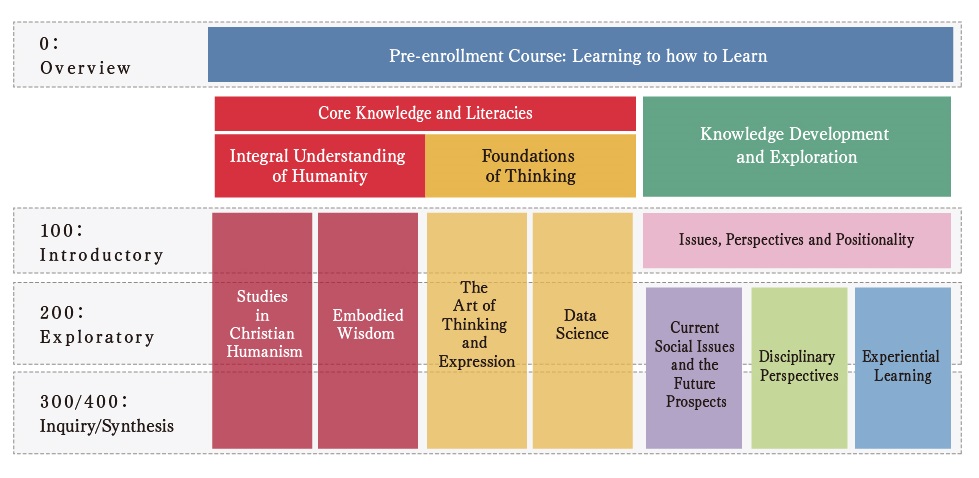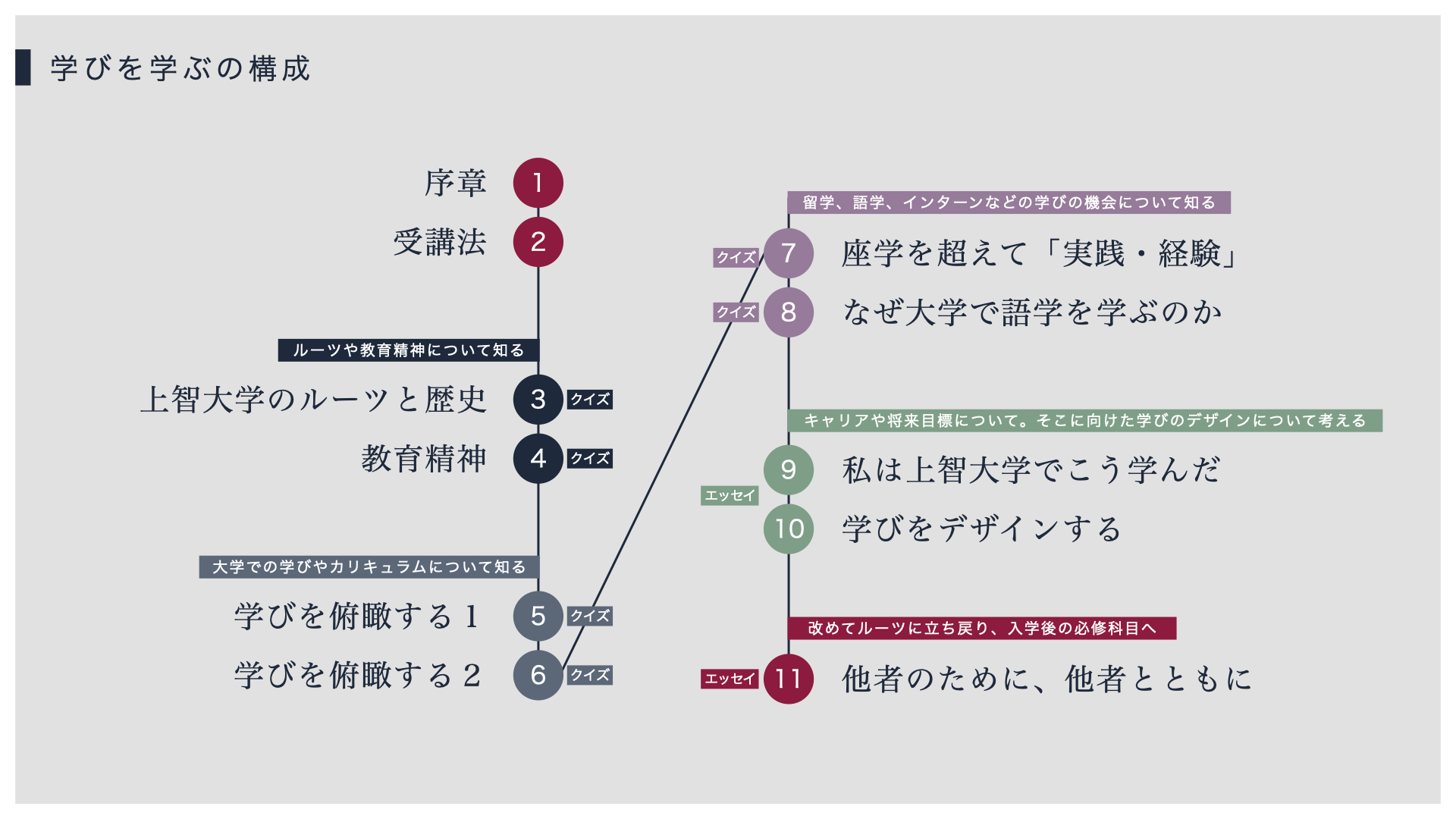University-wide General Education
University-wide General Education Courses to Foster Continuous Learning
Sophia University’s general education courses are more than basic liberal arts courses to prepare for specialized education. All students take univeristy-wide general education courses throughout four years, taking steps from the Introductory to Inquiry/Synthesis levels. They are offered across academic disciplines and also connected with specialized and language courses. They constitute an integral part of foundation for autonomous and continuous learning.

Learning how to Learn
“Learning How to Learn” is a pre-enrollment course to overview learning at univeristy. The course consists of eleven synchronous lectures. The aim of the course is for new students to start thinking about how learning at university may differ from secondary education, characteristics of learning at Sophia, and meaning and goals of learning.
Integral Understanding of Humanity
In this subject area, students are expected to proactively explore “what it means to be human” from various perspectives. The area consists of two subject categories: Studies in Christian Humanism” and “Embodied Wisdom.”
Studies in Christian Humanism
In this courses, students proactively explore the meaning and value of human life rooted in the Christian humanism at the heart of Sophia University’s educational spirit.
Embodied Wisdom
A common goal of these courses are to understand human beings from the aspect of the body, through which we are connected to others and the society. They especially focus on learning through practices and experience.
Foundations of Thinking
In this subject area, students will acquire the skills, mindsets, and habits for continuous learning through assessing, comprehending, and expressing various information such as texts, numerical and visual data. The area consists of two subejct categories: “The Art of Thinking and Expression” and “Data Science.
The Art of Thinking and Expression
In “The Art of Thinking and Expression” courses, students develop critical thinking as an attitude to question unconscious assumptions, as well as various expressive skills to communicate to and be understood by others.
Data Science
In the “Data Science” courses, students learn to read and utilize data, as well as the impact of data on society. The courses and related services are offered students with various backgrounds to learn the basics and applications of Data Science.
Knowledge Development and Exploration
The “Knowledge Development and Exploration” Subject Area constitutes of four categories. Each category is uniquely organized to provide liberal arts education to cultivate problem-solving skills, creativity, and a rich sense of humanity.
Issues, Perspectives and Positionality
The category is for a first-year compulsory course that looks at specific issues, such as the environment, by exploring not only the issues themeselves from various academic approaches but also effects of our own positionality and perspectives.
Current Social Issues and the Future Prospects
The category includes courses that look at specific issues, their future prospects and often approaches toward solving them. Environment, Sustainability, Gender, Diversity, International Peace and Cooperation, Inclusiveness are some of the issues that these courses focus on.
Disciplinary Perspectives
These courses provide students with opportunities to study a wide range of academic approaches in humanities, social sciences, natural sciences, and other fields outside of their department. Students may acquire new academic perspectives and methodologies that contribute to their own specialized studies or to explore multi-disciplinary approaches.
Experiential Learning
Leaning also happens outside classrooms. Students may gain hands-on knowledge and competencies through study abroad, service learning, career development and internship courses provided as “Experiential Learning” courses.
